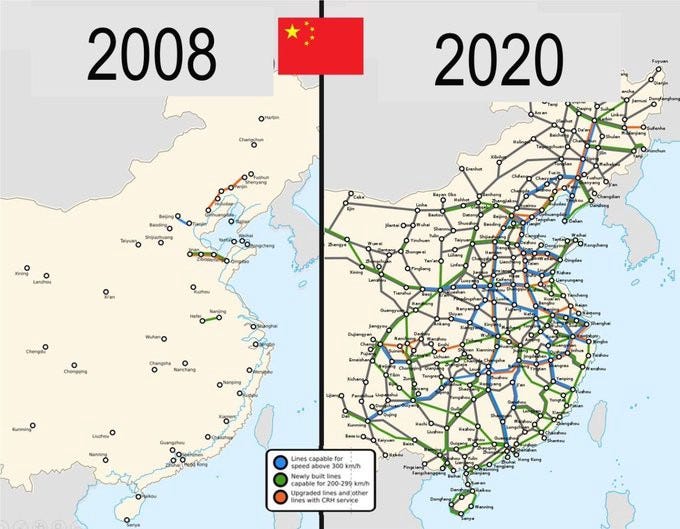# The Efficiency of Authoritarianism Versus Democratic Ideals
Written on
Chapter 1: The Moral Argument for Democracy
Democracy is undoubtedly regarded as the most ethical form of governance. Its success throughout history is largely attributed to its foundation on the principle of equal consideration for every voice and opinion. If one holds that equality is inherently good, then it follows that valuing each individual's perspective equally is a moral imperative. However, what if equality is not a priority?
Human rights protection is a relatively recent development; just a few centuries ago, slavery was universally accepted, and many nations today still do not endorse universal human rights. When efficiency takes precedence over equality, the emergence of an authoritarian regime becomes a logical conclusion.
In a nation like China, the emphasis on equality is minimal. The government prioritizes the views of the Chinese Communist Party (CCP), disregarding the voices of the general populace.
Section 1.1: Efficiency Over Equality
When one dismisses equality and the safeguarding of individual rights, resources can be directed toward achieving specific political objectives. In China's case, the primary aim has been to enhance economic growth—an endeavor in which they have excelled.
The Chinese economy has experienced unparalleled growth over the last century, surpassing any other society in recorded history. As a result, they have constructed remarkably high-quality infrastructure across the country.

Could the United States ever replicate this achievement? The average high-speed train in China operates at an impressive speed of 217 MPH, whereas the fastest train in the U.S. can only reach 150 MPH. This disparity extends to various infrastructure projects like power grids, hydroelectric dams, and research facilities.
While infrastructure alone does not define success, these examples illustrate the remarkable efficiency that a one-party system can achieve.
Section 1.2: A Personal Perspective
I am not advocating for authoritarianism in the United States. I firmly believe in the principle that all individuals deserve equal treatment under the law and that we have an ethical duty to protect everyone's rights. Yet, it is difficult not to recognize the impressive accomplishments of China.
The more I investigate, the clearer it becomes why the Chinese populace has yet to revolt against Xi Jinping and the CCP: they have achieved extraordinary milestones. In 1962, China's GDP per capita was a mere $162. Today, it exceeds $10,000—a staggering 65-fold increase in just six decades.
When juxtaposed with the United States, the contrast becomes stark. The U.S. struggles to achieve significant advancements. This is embedded in our system, with numerous checks and balances designed to uphold rights. However, these safeguards can significantly slow down progress. Reflecting on the suffering caused by governmental inefficiency leads one to question the clarity of moral superiority.
Chapter 2: The Role of Authoritarianism in Modern Governance
In this section, we will explore how authoritarian regimes manage to achieve rapid progress and the implications of such systems on global governance.
The first video titled "Modern Authoritarianism and Geopolitics: Thoughts on a Policy Framework" discusses the intricacies of authoritarian governance and its impact on policy-making.
The second video, "How authoritarianism has spread since the coronavirus pandemic began," examines the rise of authoritarian practices in the wake of global crises.